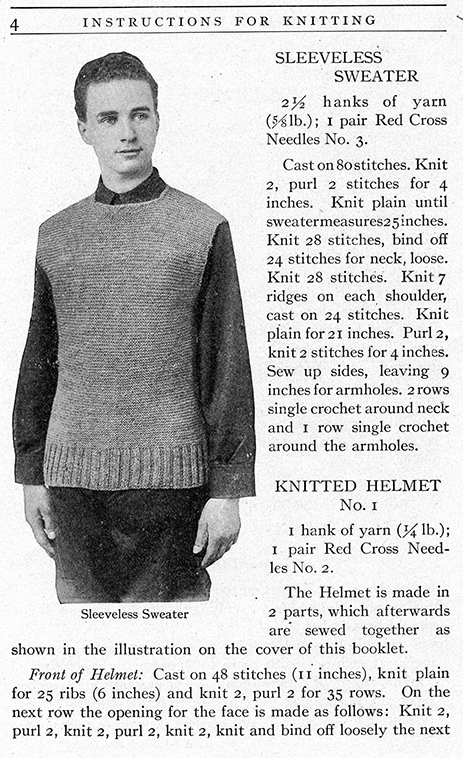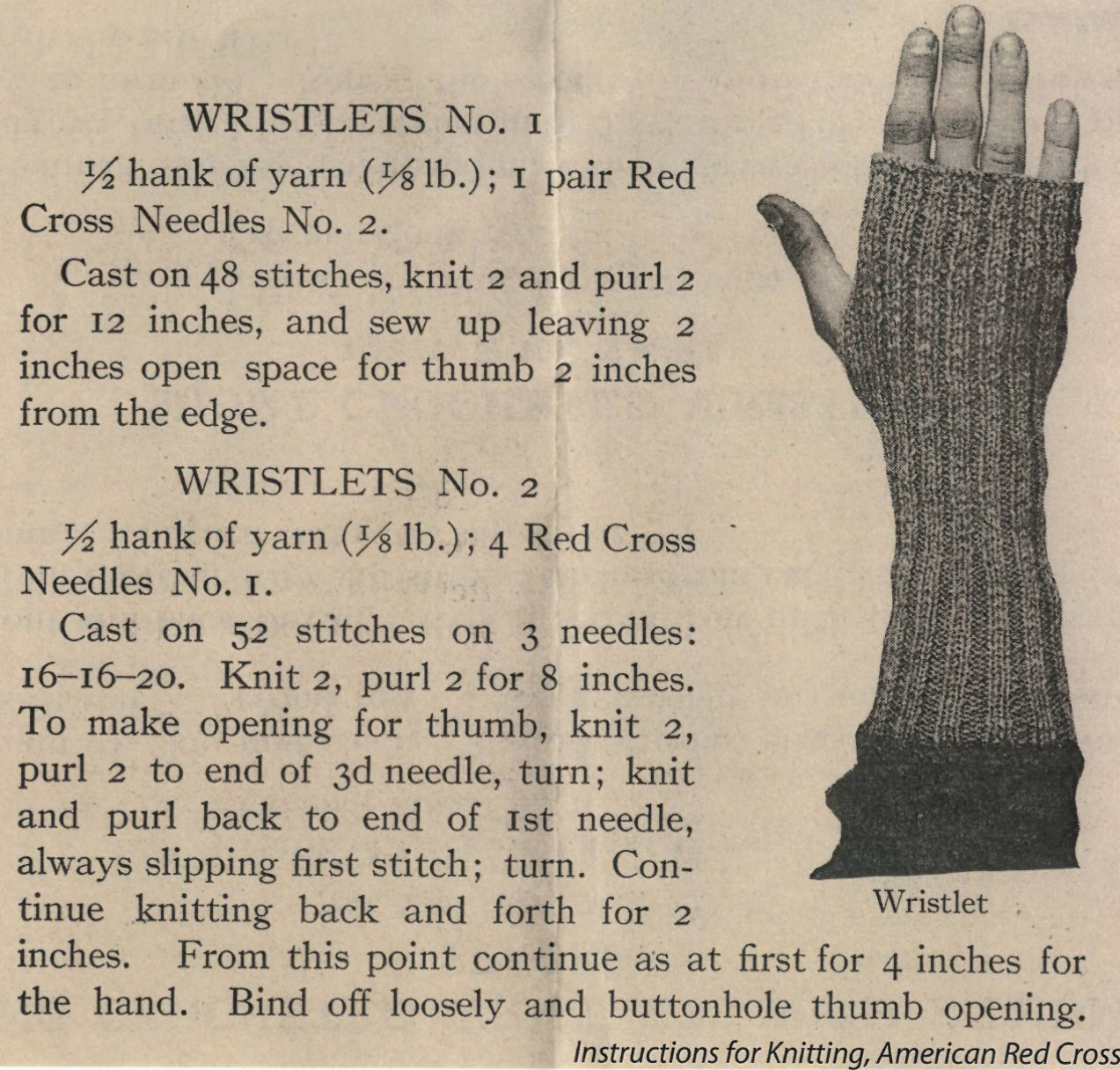Last week people all over Kinsley had fun wearing their ugly Christmas sweaters, but in 1917, knitting items for the soldiers was a serious, ongoing activity. The Kinsley Navy Knitting League had been formed by May, 1917 and was receiving donation of $20 from both the Knights of Pythias and the Kinsley Industrial Club. In September they had a window display in the Edwards, Noble & Company’s store of all the garments they had made before sending them off. (Currently, this is the location of Circle K Auto Parts. From 1915-1925 the library was in the upstairs.)
When the Navy League committee met on November 26 they reported that the amount of yarn and needles purchased in the last six months was $189.94. All the money had been donated. The 71 knitters sent to the Navy League Comfort Committee in Washington, D.C., 55 sets or 220 articles. They also sent garments to local boys who were in training. They had made 59 sleeveless jackets, 61 scarfs, and 63 pairs of wristlets. At this meeting they decided to disband because the Red Cross was doing the same line of work (Graphic Nov. 8, 1917).


By fall, ladies were busy on Tuesday and Friday sewing and knitting for the Red Cross. Groups like the Women’s Missionary Society and the Women’s Civic Club were encouraging their members to knit for the Red Cross. The following appeared in the High School News in the November 29 issue of the Graphic: “We have a patriotic school. Knitting is so common during recess and other spare moments that we hardly notice it anymore.”
Not all ladies knew how to knit when the war began. This humorous item appeared early on in both the Kinsley Graphic and Mercury.
She Tried Anyway
Since knitting for the soldiers has come to be such a popular pastime, many young ladies to whom the art was formerly unknown, have taken it up. One of these who joined a knitting league, enclosed her name and address in her first contribution, and in time received the following from its receiver:
Got yer socks and they almost fit.
I use one for a helmet and one fer a mit.
Mabe I’ll see yer when I do my bit.
But where in the devil did yer learn to nit.
Joking aside, by November, the soldiers were receiving well-knit sweaters which often had a note attached that identified the name and address of the woman who made it. Some letters of appreciation were sent back and published in the Graphic. Here are a few:
Mrs. Turner received this note from Private Al Levy in Washington D.C.: “Have just received the woolen headpiece with your name attached and wish to express my sincere thanks and appreciation to you and women co-workers for their great desire to help the cause of democracy and humanity rule out Kaiserism, militarism, and kultur.”
Marine Lee Crawford wrote from Quantico, Virginia: “Dear Friend, Mrs. West, This evening our company was issued a number of sweaters. I think everyman received one. As mine is an unusually good one and it contains your name, I am writing in thank you for it. We have a sort of habit of comparing gifts, and can surly say I have an unusually good sweater.
Private Percy Fairbrother also wrote from Quantico: “My Dear Mrs. Aderhold: It is some days past that I received a sweater, to which a slip of paper was attached with your name and address. I don’t know just how to start to thank you, but such articles certainly are appreciated by the boys in camp. There must be a great amount of knitting being done through the country for I think I am safe to say that every man in the camp has a sweater or some such article which has been made in the homes, and I suppose the fellows in other camps fare the same.”
Private Lee Bailey wrote Mrs. Ruth Morse from Quantico: “I am writing to let you know that someone appreciated the noble efforts which you are putting forth to make life happier for men in uniform. This morning when I awoke at 5:30 there was a snow two inches deep on the ground. Twenty minutes later our Company Commander was giving out the sweaters, and I received the one you made. As I am from the west, also, my home being in Tulsa, Okla., I am not used to this cold weather, and added clothes are certainly appreciated….”
Moss Gill not only wrote Mrs. Frank Trotter to thank her, but he could not resist mentioning a very early football rivalry. “I was issued a sweater yesterday with your card attached. Please accept my most sincere thanks for such a useful gift. The painstaking care and labor used in making it, is testimony of your willingness to do your ‘bit’ in this great war. The sacrifices to be made later are made easier by our knowing we are so kindly remembered ‘back home’. By way of explanation, I may say that I am from Perry, Missouri….My main experience with Kansa was in rooting against them at the University of Missouri football games. Kansas has her share of men in the marine corps, and I find they take to soldering as well as they do to football playing. Again thanking you for your most kind and useful gift, and assuring you that if I am favored with the opportunity it will be taken to France and work on a willing marine (myself).”
